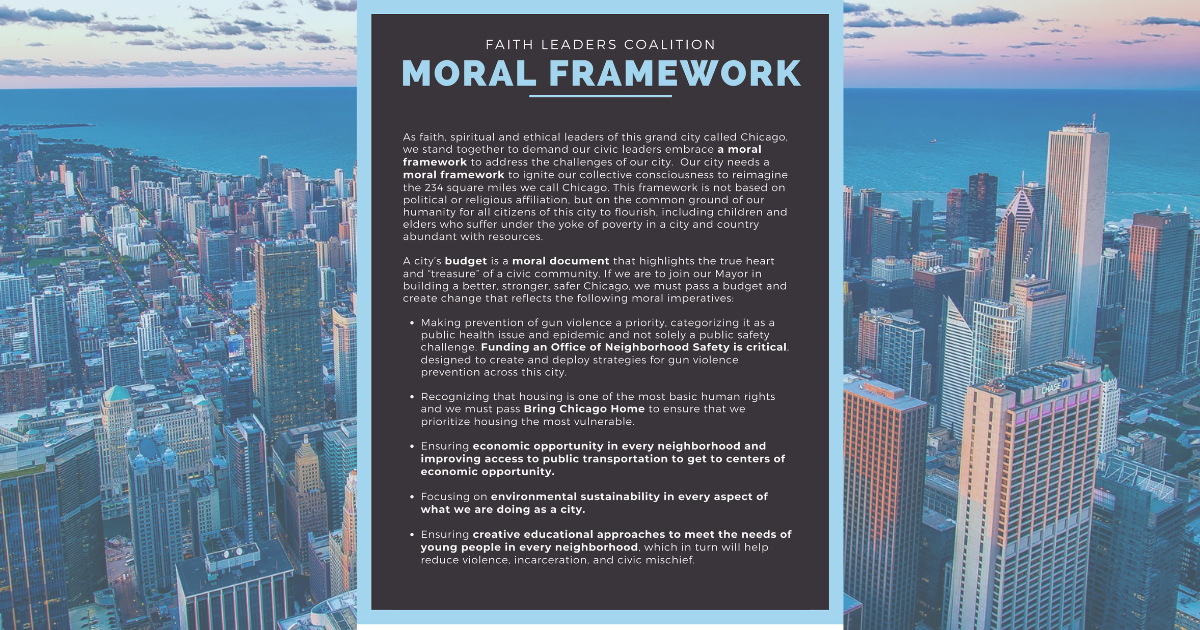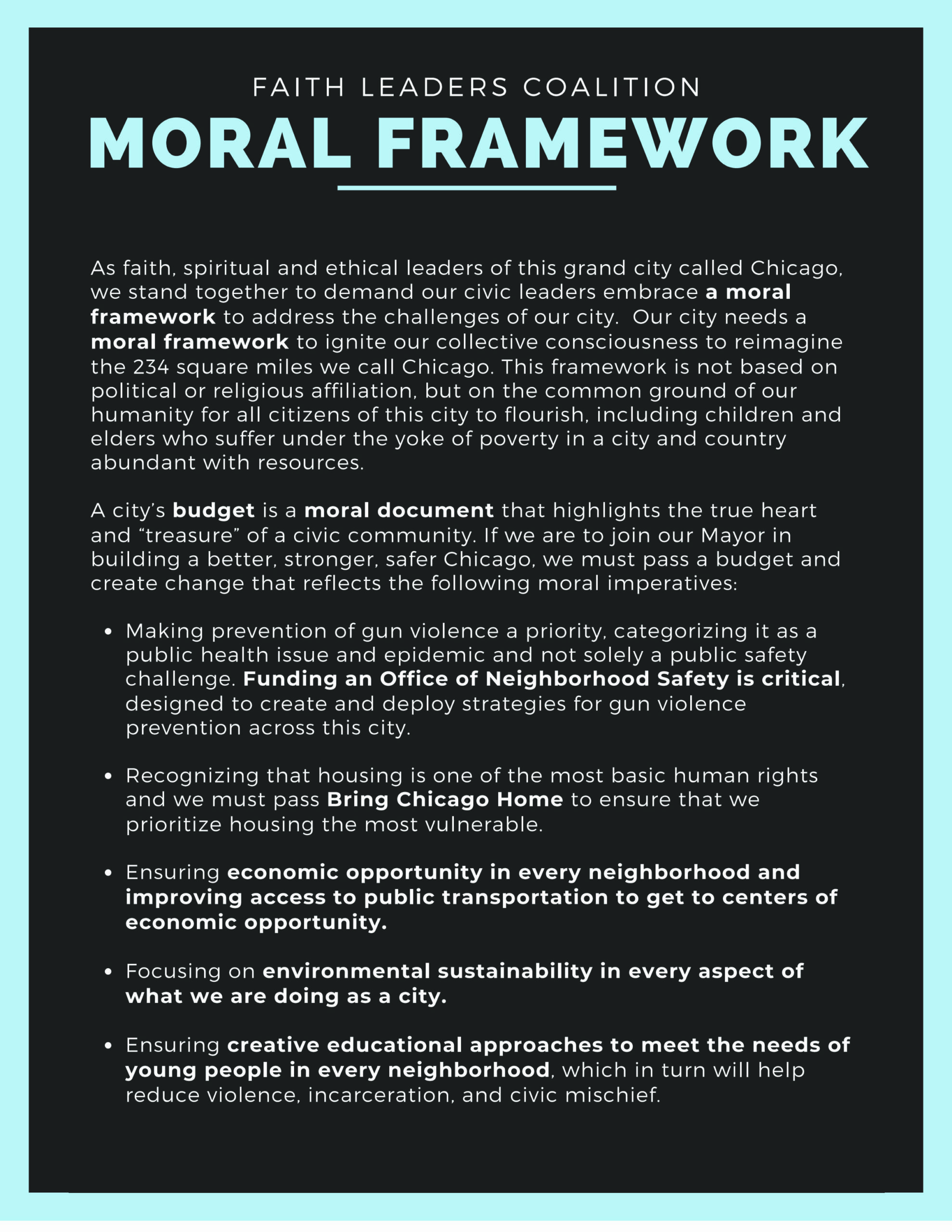A coalition of faith leaders from across Chicago released a “Moral Framework” ahead of today’s first city council meeting under the Johnson administration. The framework encapsulates the collective insight of faith communities throughout the city and calls on Chicago’s civic leaders to pass a moral budget that serves the common good and addresses root causes of systemic injustices that have plagued the city for generations, including gun violence, housing insecurity, and access to economic opportunities.
“It is imperative that we approach the challenges our city is facing with a sense of shared responsibility and moral clarity,” said the Rev. Ciera Bates-Chamberlain, executive director of LIVE FREE Illinois, one of the mobilizing organizations of the clergy coalition. “Our moral framework proposes solutions such as funding an Office of Neighborhood Safety as a way to create and implement gun violence prevention strategies into public policy. By embracing this framework, city leaders can foster an environment where compassion, fairness, and justice guide the decision-making processes. Through inclusive policies and collaborative efforts, we can work together to create safer neighborhoods and empower citizens who have been impacted by generations of disinvestment.”
Members of the faith coalition behind the moral framework include:
- the Rev. Ciera Bates Chamberlain, LIVE FREE Illinois
- Artinese Myrick, LIVE FREE Illinois
- Pastor Beth Brown, Lincoln Park Presbyterian Church
- Pastor Bill Ellis, APC Morgan Park
- Pastor Cy Fields, New Landmark Baptist Church
- Pastor Chris Griffin, First Baptist Congregational Church
- Rabbi Seth Limmer, Chicago Sinai Congregation
- Pastor Otis Moss III, Trinity United Church of Christ
- Father Michael Pfleger, St. Sabina Catholic Church
- Pastor Marcus Tabb, South Shore United Methodist Church
- the Rev. Stephen Thurston, New Covenant Missionary Baptist Church
The clergy, who began working together to build support for solutions to the city’s gun violence epidemic four years ago, are advocating for community-centered, restorative justice-based approaches to policy solutions that prioritize equitable access to education, healthcare, and employment opportunities, providing individuals with tools to overcome systemic barriers and lead fulfilling lives. They also hope the framework will strengthen community bonds and foster a sense of belonging, emphasizing the importance of collaboration between law enforcement, community organizations, and city residents.







